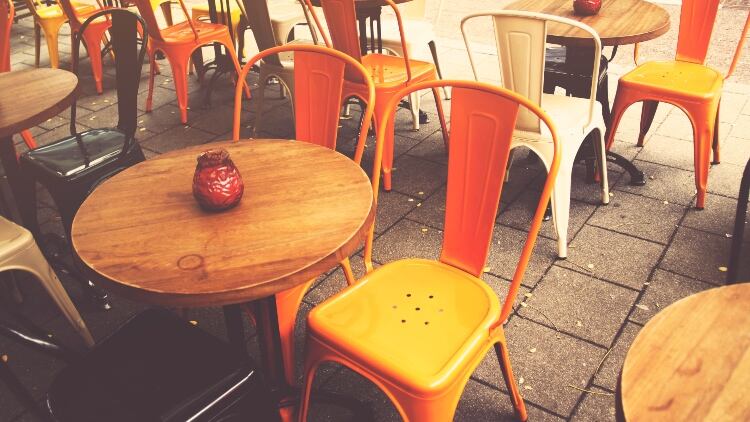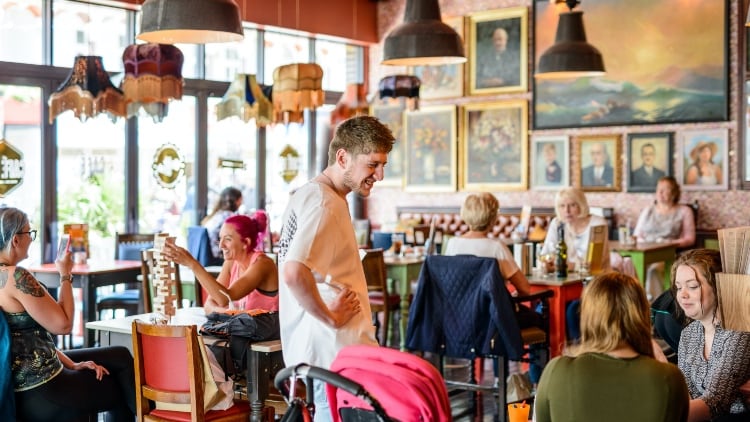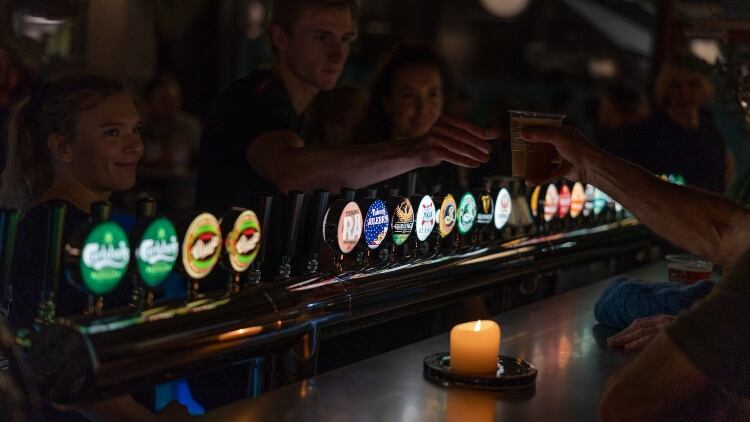It is, of course, recognised that most venues are going to need at least an element of outside drinking to pay the bills for reasons that will be clear to anyone reading this. Hence admirable campaigns such as Alan Lorrimer’s UK Grand Summer Outdoor Café.
But, amid all the chatter about whether, where and when, there is little discussion about ‘how’.
It is over a fortnight since the Secretary of State for for Housing, Communities and Local Government Robert Jenrick said he was considering permitting outside drinking in pedestrianised areas – but a fortnight is an awfully long time in politics, and the radio silence since is deafening.
It is possible that the minister has discovered that translating desire into action is tricky in a complicated legislative field – so, let me help.
If the Government listens, it will get town centres up and running next month. If it doesn’t, then unless it has a better plan – and if it does, I sincerely doff my wig – we’re looking at mid-autumn at least.
The basic problem is that to trade out of doors, three separate consents are needed: planning permission, which is required by some authorities; tables and chairs licences; and a premises licence.
The first takes at least two months. The second takes up to three months and can cost several thousand pounds. The third may require a hearing, in which case the delay is also two months and frequently requires lawyers. The whole is a bureaucratic nightmare that, generally, requires manicure by machete, but that is for another day.
A further issue is that even if the Government could deregulate with a single sweep of its hand, it would not do so, because it cannot and should not tell local authorities exactly where they can permit exterior drinking. This needs to remain a matter of local control. Therefore, there needs to be a careful balance between lubricating the process and disabling the brakes entirely.
This looks like an imbroglio. It is, but there is a solution.
Planning
The Town and Country Planning Act 1990 gives the Secretary of State power to grant general planning permission by a development order, whether unconditionally or subject to conditions. This power was recently exercised to permit restaurants and bars to trade as takeaways for a year. It involves no parliamentary process or public consultation.
It should now be used to grant planning permission for the use of outside areas for all exterior consumption of food and drink on condition that it is supplied either a) under, and in accordance with, a table and chairs licence or b) on council land. In the former case, supply would be governed by the terms of the tables and chairs licence. In the latter, it would be governed by a contract between the council and the operator: this would work well in public squares and parks.
The beauty of this proposal is that it avoids the local planning process entirely, while still leaving local control in the hands of local authorities.
It has been reported that Mr Jenrick is considering granting blanket permission for tables and chairs in pedestrianised areas, but many premises do not trade in pedestrianised areas. However, given that local control will remain under the tables and chairs licence, he can afford to grant planning permission without any locational restriction at all.
Table and chairs licences
The benefit of making the table and chairs licence the principle form of control is that there is no statutory fee, no need for a licence hearing and the power to decide applications can be delegated to officers. However, some authorities charge very large fees. Others take too long to decide applications, far more than the 28-day consultation period written into the statute.
The solution is for the Secretary of State to publish non-statutory guidance, the main elements of which would be:
- Authorities should set out a simplified set of requirements for applicants, for example, supervision of the exterior area, a minimum distance of one metre between tables in accordance with World Health Organisation (WHO) guidance, minimum clearance for pedestrians and storage of tables at night
- Rather than devising their own conditions, applicants should be able to confirm in their application that they will meet the authority’s requirements. If the licence is granted, these requirements will then be imposed by condition
- Applications for trade within social hours (say 10am to 10pm) will carry a presumption in favour of grant
- Applications should be determined by officers as soon as the consultation period has expired
- Given the simplified system for applications, fees should generally be restricted to £100
This will enable the very rapid determination of large numbers of applications, with successful applicants trading to common standards, so aiding compliance monitoring and enforcement.
Premises licences
Premises licences permitting off-sales should be used to provide alcohol for exterior consumption.
In some cases, there will be conditions that are appropriate for interior consumption, such as use of identification systems and door supervision, which will be unnecessary for exterior supply.
The solution should be for applicants to be able to relax conditions for exterior supply only by way of application for minor variation. The consultation process for such applications takes only 10 working days.
Meanwhile, the Secretary of State can publish national guidance under the Licensing Act without any parliamentary process at all. This power should be used to urge authorities to accept minor variation applications, releasing onerous conditions in so far as these relate to exterior drinking, particularly since the relevant requirements should already be contained on the tables and chairs licences.
Many premises will fall within cumulative impact areas. The guidance should explain that the Secretary of State does not consider that cumulative impact policies should be used to bar the ability for premises to supply alcohol until 10pm, in line with standard conditions imposed under a table and chairs licence.
The guidance should also encourage statutory authorities not to use their powers to object to minor variation applications but should work in partnership with operators to deal with any issues arising.
There are reports of the police being concerned about exterior drinking. However, the function of the police is not to prevent an important social and economic development but to use their resources wisely to protect the public.
Furthermore, physical distancing within premises will mean far less crime to police indoors and put most activity on the street where it can be clearly supervised, witnessed and overseen by CCTV.
It is now noticeable on town and city streets that the absence of trading premises is bringing out new forms of unlawful and antisocial behaviour. It is strongly in the public interest that the streets are reclaimed by experienced, licensed operators for the benefit of the public at large.
This public health crisis has tested the Government on many levels. The latest, and perhaps last, test is whether it can relight the touchpaper of our economy. To do so, it will need to display the courage and determination of the American revolutionaries. Here’s hoping it rises to the challenge.
• Read the latest digital edition of The Morning Advertiser – for free – by clicking here.




